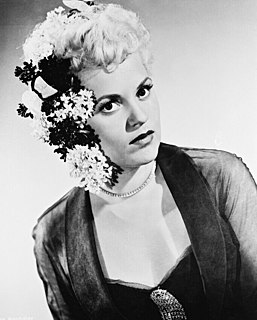A Quote by Stephanie Coontz
Unilateral divorce has decreased the bargaining power of the person who wants the marriage to last and has not engaged in behavior that meets the legal definition of fault. On the other hand, it has increased the bargaining power of the person who is willing to leave.
Related Quotes
What is the cause of historical events? Power. What is power? Power is the sum total of wills transferred to one person. On what condition are the willso fo the masses transferred to one person? On condition that the person express the will of the whole people. That is, power is power. That is, power is a word the meaning of which we do not understand.
There are many different kinds of power. True power comes from serving and helping others. Such behavior makes people respect you. They are willing to listen to your views and advice, and they support you. The energy of many people is thus channeled through one person. This kind of power is positive and authentic.
I do think that it's important to understand what each person has coming into the relationship, and what each person expects from the relationship. I find it so interesting that so many people rush into the commitment of marriage, which is a legal contract, without knowing anything about what the expectations of the other person are, and they've not explained or articulated their expectations of the other person.
Collective bargaining has always been the bedrock of the American labor movement. I hope that you will continue to anchor your movement to this foundation. Free collective bargaining is good for the entire Nation. In my view, it is the only alternative to State regulation of wages and prices - a path which leads far down the grim road of totalitarianism. Those who would destroy or further limit the rights of organized labor - those who would cripple collective bargaining or prevent organization of the unorganized - do a disservice to the cause of democracy.
I do not invent characters. There they are. That's who they are. That's their nature. They talk and they behave the way they want to behave. I don't have a character behaving one way, then a point comes in the play where the person has to either stay or leave. If I had it plotted that the person leaves, then the person leaves. If that's what the person wants to do. I let the person do what the person wants or has to do at the time of the event.

































